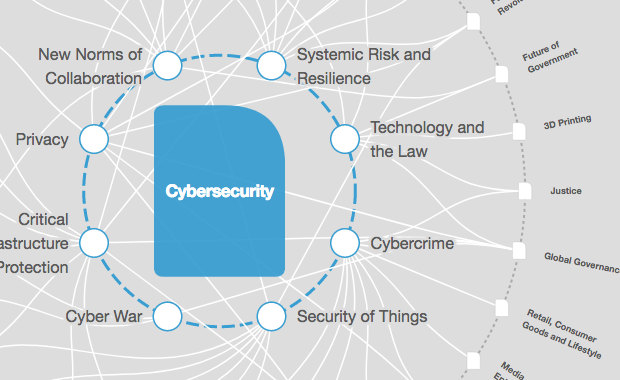Cyber Security training is imperative to the success of any modern workplace. Cyber Security is the body of technologies, processes, and practices designed to protect networks, computers, and data from attack, damage, and unauthorized access. ACTE’s Cyber security training course teach to spot vulnerabilities, fend off attacks, and immediately respond to emergencies. Start Learning with us ACTE Cyber Security Classroom and Online Training Course.
Additional Info
Cyber Security Future Scope
It is evident that there is a shortage of Cyber Security professionals in the market but the scope of Cyber Security jobs in India is growing. Eventually, we expect more millennials understand that the industry is witnessing explosive growth. Here are the profiles that are in much demand in India.
There is a tremendous scope of Cyber Security jobs in India and to enter the field of Cyber Security, one must possess some kind of Bachelor’s degree in Computer Science. It would be an engineering degree or a 3-year graduate program that specializes in Computer networks and systems.
Cybersecurity jobs are in high demand and it doesn’t seem like the need for more security professionals is going anywhere in the foreseeable future. Cyber attacks are only becoming more common and more harmful, and even though we tend to only hear about the attacks of high-profile entities, no company -- or individual for that matter -- with an online presence is immune to attacks.
The future of cybersecurity will be largely determined by what hackers will be after. And I think this will primarily be in two areas: Health and Wealth. More specifically, this means private healthcare-related data and sensitive payment information. Private health records can be worth a fortune. Credit card data can be used for fraud or sold on the black market.
These are the two categories that currently get hacked the most, and hackers are only going to target them more and more in the future. But as a response, expect governments and regulators to step up and try to mitigate the threats.
Hackers will continue to be more sophisticated, using new methods and tools to gain access to private information. At the same time, technology will continue to evolve, providing hackers with an even larger attack surface and more vulnerability to exploit. Even unsophisticated hackers will automate their strategies in their efforts to infiltrate vulnerable companies. Hackers will also take advantage of the fact that companies increasingly rely on their supply chains and will target popular third-party tools, suppliers and companies as a way to breach as many targets as possible.
To defend against such cyberattacks, companies will need to use more effective security solutions with innovative approaches. For instance, companies will assess their cybersecurity as seen from the hacker’s point of view. The goal will be to not only increase cyber resilience internally within their specific company but also across the company’s supply chain.

Career Path for Cyber Security Professionals
Security Architect
If you are passionate about problem-solving and creating big-picture strategies, the security architect career path is for you.
A security architect is tasked with designing, building and implementing network and computer security for an organization. Security architects are responsible for creating complex security structures and ensuring that they function properly. They design security systems to combat malware, hacker intrusions and DDoS attacks.
As a security architect, you’ll be required to:
- Plan, research and design durable security architectures for various IT projects.
- Develop requirements for networks, firewalls, routers and related network devices.
- Perform vulnerability testing, security assessments and risk analysis.
- Research and implement the latest security standards, systems and best practices.
Security Consultant
A security consultant is a catch-all cybersecurity expert. They assess cybersecurity risks, problems and solutions for different organizations and guide them in protecting and securing their physical capital and data. The position might also be referred to as an information security consultant, computer security consultant, database security consultant or network security consultant.
Security consultants need to be flexible and savvy – they deal with a wide range of variables when assessing security systems across diverse companies and industries.
As a security consultant, your daily tasks may include:
- Determining the best way to protect computers, networks, data and information systems from potential attacks
- Performing vulnerability tests and security assessments
- Interviewing staff and department heads to uncover security issues
- Testing security solutions using industry standard analysis methods
- Providing technical supervision and guidance to a security team
Penetration Tester/Ethical Hacker – Mid to Senior Level
Penetration testers (also known as ethical hackers) look for weaknesses in IT systems, networks and applications using the same knowledge and tactics as criminal hackers. Penetration testers use a series of tools to simulate real-life cyberattacks, identify weak spots and help organizations improve their security posture.
As a penetration tester, you’ll be expected to:
- Perform penetration tests on web applications, networks and computer systems
- Uncover security holes and pinpoint the methods attackers could use to exploit system weaknesses
- Research, document and discuss findings with management and IT teams
- Design and implement new penetration tools and tests
Chief Information Security Officer (CISO) – Senior level
If you aspire to lead a security team and spearhead IT initiatives for an enterprise, becoming a CISO is a lucrative and rewarding career path.
The role of chief information security officer comes with a lot of power and creative freedom. CISOs build security teams and oversee all initiatives that concern an organization’s security. The CISO reports to the CIO or CEO.
As a security architect, you’ll be required to:
- Plan, research and design durable security architectures for various IT projects.
- Develop requirements for networks, firewalls, routers and related network devices.
- Perform vulnerability testing, security assessments and risk analysis.
- Research and implement the latest security standards, systems and best practices.

































